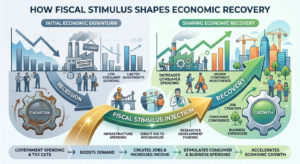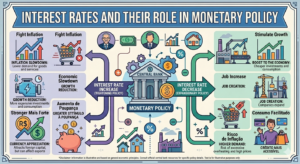Managing finances is one of the most critical aspects of running a successful small business, especially in 2025, a year filled with new challenges and opportunities. Whether you’re a seasoned entrepreneur or just starting your business journey, understanding how to organize your finances can help you make informed decisions, stay financially healthy, and grow your business effectively. In this article, we will explore essential strategies and tips for organizing your small business finances in 2025.
Create a Comprehensive Business Budget
The first step to organizing your small business finances is creating a detailed budget. A budget serves as the roadmap for your business’s financial health. In 2025, businesses are facing inflationary pressures, rising costs, and fluctuating demand. Therefore, a solid budget is more important than ever.
Start by tracking all your business expenses, including fixed costs like rent, utilities, and salaries, as well as variable costs such as inventory, marketing, and other operational expenses. Categorize these expenses into groups, and then estimate how much you’ll earn from your products or services.
Tools like QuickBooks, Xero, or Microsoft Excel can help you create and manage a budget. Be sure to regularly revisit and adjust your budget to account for changes in your business, the market, or the economy.
Utilize Accounting Software for Efficiency
Accounting software is a game-changer when it comes to organizing small business finances. In 2025, technology continues to play a vital role in streamlining financial management. By using cloud-based accounting tools like QuickBooks, FreshBooks, or Wave, small business owners can automate many time-consuming tasks, such as invoicing, expense tracking, and financial reporting.
These tools can also help you generate profit and loss statements, balance sheets, and tax reports with just a few clicks. The ability to access your financial data in real-time from anywhere allows you to make smarter decisions, especially when managing cash flow, budgeting, and taxes.
Understand Your Cash Flow
Cash flow management is crucial for any small business, particularly in a year like 2025, when economic uncertainty may cause slowdowns in revenue. Cash flow refers to the movement of money into and out of your business. Positive cash flow means you have enough money to cover your expenses, invest in growth, and save for future needs.
To manage cash flow effectively, track your income and expenses regularly. Be proactive in addressing late payments, reducing unnecessary expenses, and finding ways to increase revenue. Implementing strategies like offering discounts for early payments or tightening your credit policies with clients can help ensure that you have enough liquidity to run your business smoothly.
Separate Business and Personal Finances
One of the most common mistakes small business owners make is mixing their personal and business finances. In 2025, it’s essential to keep these finances separate to avoid confusion and potential tax issues. Opening a dedicated business bank account is a simple but effective way to achieve this.
A separate business account not only makes bookkeeping easier but also provides a clearer picture of your business’s financial health. Additionally, it helps to protect your personal assets from business liabilities and ensures that your tax filings are accurate and in compliance with regulations.
Monitor Key Financial Metrics Regularly
To stay on top of your business finances in 2025, it’s essential to monitor key financial metrics consistently. Some critical metrics to track include:
- Gross Profit Margin: This tells you how much money you’re making after covering the cost of goods sold. A higher margin indicates more profitability.
- Net Profit Margin: This shows the percentage of revenue that remains as profit after all expenses. It’s a key indicator of financial health.
- Accounts Receivable Turnover: This helps you measure how quickly you collect payments from customers.
- Debt-to-Equity Ratio: This ratio helps you understand how much debt your business has compared to its equity. It can be an indicator of financial risk.
Tools like financial dashboards or reporting software can automate the tracking of these metrics, providing you with real-time insights into your business’s financial performance.
Plan for Taxes in Advance
Taxes can be a major source of stress for small business owners, but with proper planning, they don’t have to be. In 2025, tax laws may continue to evolve, and staying compliant with tax regulations is essential to avoid penalties or audits.
Make sure to keep track of all your receipts, invoices, and tax-deductible expenses throughout the year. It’s also wise to set aside a portion of your income for taxes to avoid a cash crunch when tax season arrives. Hiring a tax professional or accountant can help ensure you’re taking advantage of all available tax credits and deductions.
Implement Strong Financial Controls
Implementing internal financial controls is a vital step in protecting your business from fraud and errors. Financial controls are policies and procedures that ensure the accuracy and security of your financial data.
These controls could include processes like segregating duties (e.g., separating the person who approves invoices from the one who processes payments), conducting regular audits, and using strong passwords and encryption for your accounting software.
By putting these measures in place, you can safeguard your business’s financial integrity and prevent costly mistakes.
Plan for Long-Term Financial Growth
Finally, a key aspect of organizing your small business finances is planning for long-term growth. In 2025, small businesses need to think beyond day-to-day operations and focus on strategies that will fuel future success.
Consider setting aside funds for expansion, whether through increased marketing efforts, hiring new staff, or investing in new equipment. Having a savings plan for future growth or unexpected emergencies ensures that your business can weather any storm and continue to grow in the long run.
FAQs (Frequently Asked Questions)
1. Why is budgeting so important for my small business in 2025?
Budgeting helps you stay on top of your expenses, control cash flow, and make better financial decisions. In 2025, with potential economic fluctuations, having a clear budget allows you to plan ahead and avoid financial difficulties. A well-structured budget helps allocate resources effectively and ensures you can cover costs without overspending.
2. What are the best accounting tools for small businesses in 2025?
Some of the best accounting tools for small businesses in 2025 include QuickBooks, FreshBooks, Xero, and Wave. These tools help automate bookkeeping, generate financial reports, track expenses, and manage invoicing. Choosing the right tool depends on your business’s specific needs, so it’s essential to evaluate the features that matter most to you.
3. How can I manage cash flow effectively in my small business?
To manage cash flow effectively, track your revenue and expenses regularly, set aside funds for taxes and emergencies, and implement strategies to speed up collections, like offering discounts for early payments. Staying on top of late payments and controlling unnecessary expenses is also key to maintaining a healthy cash flow.
By following these steps and implementing sound financial practices, you can ensure that your small business stays financially organized in 2025, giving you the foundation to grow and succeed in the future.







